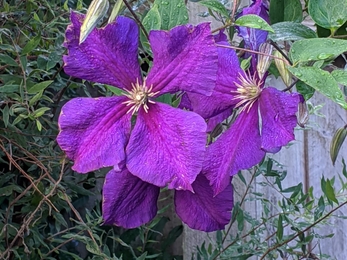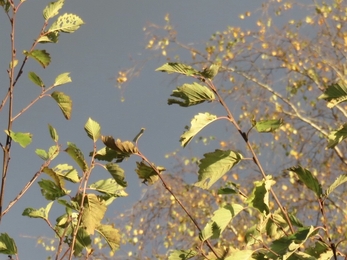CMT is a hereditary condition that damages the peripheral nerves. Because of the nerve damage, people living with CMT find that their muscles become slowly weaker over the years, particularly in their hands and feet, which often impacts their ability to continue with routine activities. In my case, I have had to adapt to using a wheelchair to get around, which has been challenging but I am determined to make sure it doesn't stop me doing all of the things I have always loved.
In the early days, using the wheelchair had been a much dreaded event. However, 2 years in and the days of worrying about a treacherous patch of grass or slippery "non-slip" surfaces, have been far from my mind. Negotiating the 2 inch rise of a pavement, has NOT been a daily challenge.
I do reflect on the things I miss, not often, but probably more so on a wet and windy autumn day. It is harder to get ready and go out, when the rain pours, and getting wet feet is the least you can expect. It takes longer to do any outdoor trip, whether it’s to work, the gym, meeting friends or the boring but necessary things. Achieving the ordinary is the one of the hardest battles for people with disabilities. If it takes 5 times as long to pull up a zip, or 5 minutes longer to get in the car, then the impact on my energy is significant. I am getting much better at knowing when it is best to stay put.
However, I still know that the effort is worth the outcome on most occasions.
It is ok to miss what you don’t have, and feel grateful at the same time for things you can do. It is okay to feel frustrated and to wallow a while in sadness. These feelings can exist together but accepting this takes time.
Nature and our environment can have such a positive impact on mental and physical health. Just the simple things like going outdoors and looking at flowers and insects feeding can make a huge difference. I try to use that knowledge when the physical side of life is a challenge. I recognise my own cycle of well-being and try to accept what I can’t do by enjoying more of the things I can.
With CMT, and other neurological conditions, there is a continual cycle of loss, grief and adapting to the physical changes as more tasks become more challenging. In any natural life cycle there are patterns, recognising these can help to focus on what is to come rather than what was before. Adding in a love of the little things in nature, certainly helps me.
The dull, grey, wet landscape may not appear very inspiring, but it is there to remind us of the beauty and growth that follows.
Eventually, the light shines through naturally, Or a single ray of light breaks through the clouds, settling on a drenched leaf or bounces off a recently rained upon pathway. Leading you to a new day, a new reason to shine brightly.
For more information about CMT, please visit https://www.cmt.org.uk/



